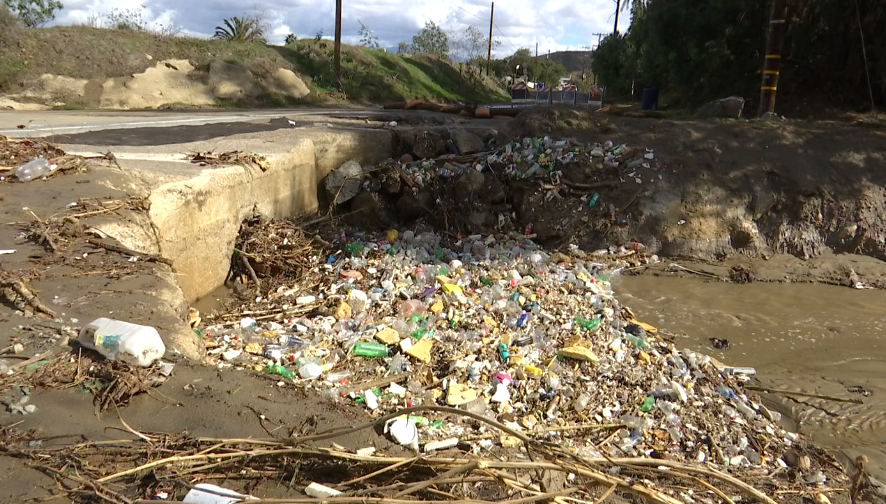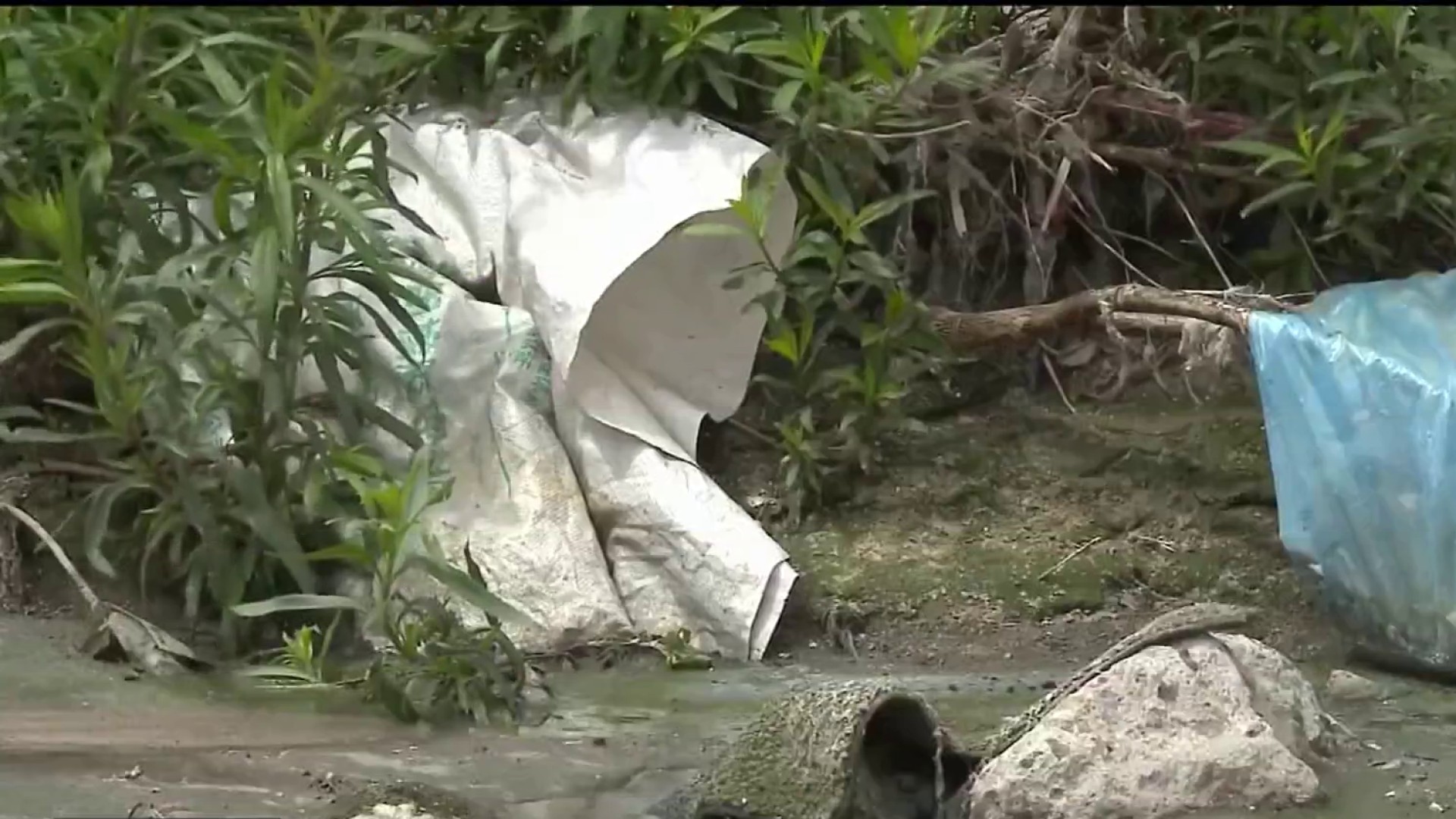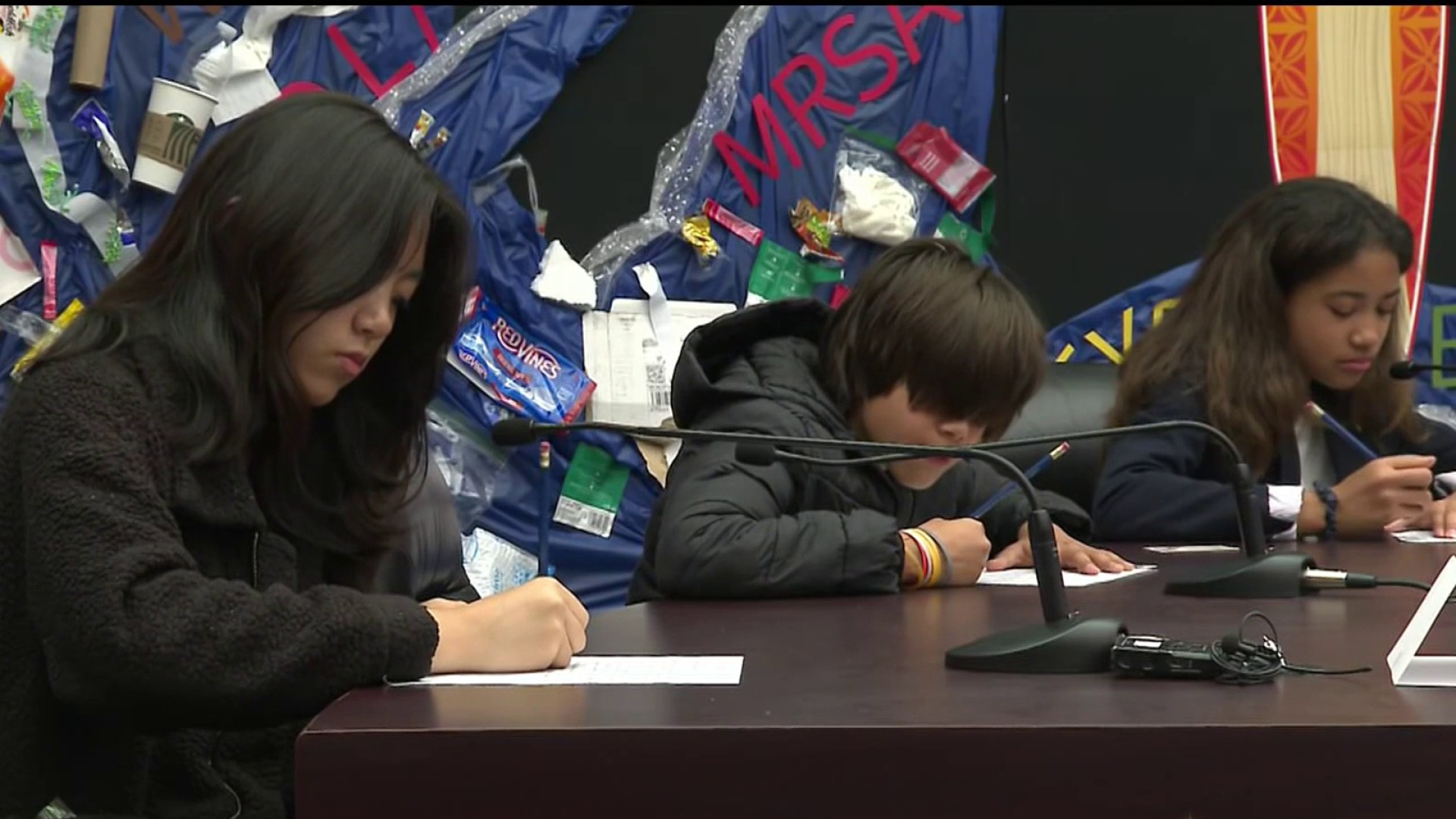The San Diego Air Pollution Control District governing board met Thursday to discuss steps to protect South Bay communities from high levels of toxic chemicals detected in the air from pollution flowing in the Tijuana River, an issue that has been ongoing for years.
Six sensors were installed throughout the Tijuana River Valley to measure the levels of the compounds emitted into the air.
The findings revealed high concentrations of hydrogen sulfide in those areas in the last three months, which officials with the San Diego Air Pollution Control District say do not pose a threat.
“We have not seen any data to indicate that there’s immediate threat to life and health,” Paula Forbis with the Air Pollution Control District said.
Get top local stories in San Diego delivered to you every morning. Sign up for NBC San Diego's News Headlines newsletter.
But some scientists who have been studying conditions at the border disagree.
“Our measurements are robust, their degree across the instruments we’ve been making them. We show every night it gets high,” Kim Prather, UC San Diego Professor of Chemistry at Scripps Institution of Oceanography.
What is clear is the toxic tide in the Tijuana River Valley is affecting the quality of life for thousands of South Bay residents. Nearly 3,000 water complaints have been filed in the South Bay in the last two months, according to William Jacques of the Air Pollution Control District.
Omar Araiza, South Bay resident and former firefighter, is among the thousands of people raising concerns about the possible effects toxic odors could have on his health.
“I started gagging, I got eye irritation. I wanted to throw up. I was literally walking into a cloud of toxic,” Araiza said.
The ACPD said it’s also considering issuing an abatement order to the International Boundary and Water Commission and its contractor, Veolia, the agency responsible for a San Ysidro water treatment plant that churns 25 million gallons of sewage coming from Mexico a day and sends it to the Pacific Ocean.
“These orders are typically issued when a source of pollution is in violation with the air quality regulations or poses a threat to public health and the environment,” William Jacques with San Diego County Air District said.
Toxic Tide: The sewage crisis at the border
NBC 7 investigates the millions of gallons of raw sewage crossing from Tijuana into the United States every day, including how the crisis affects our health — and what must be done to end it.
Following the border sewage crisis
City leaders said reaching a permanent solution will require a binational approach, but they are committed to take action to address the pressing issues.
Mayor Todd Gloria announced Thursday he’s traveling to Mexico City next month to meet with the country's president and her administration to reiterate the urgency of getting the sewage issue resolved.
“Can we do everything we possibly can to try and improve the quality of life for the residents who are suffering in the South San Diego County? And the answer I believe today will be yes,” Mayor Todd Gloria said.
Earlier this year, the San Diego County Board of Supervisors allocated $100,000 to distribute free air purifiers to affected areas. Chairwoman Nora Vargas said Thursday the Air Quality Control District board, which she has a seat on, has secured funding to expand the program. The agency she said also is looking at developing a long-term strategy for the funding and distribution of air purifiers.
The board also voted Thursday to extend their June 2023 an emergency declaration. The meeting was filled with South Bay residents affected by the pollution.
Residents like Omar hope to soon see a change in their quality of life.
“One of the follow-ups that I want to see done is not just the policy, not just that it’s declared a national emergency, is that immediate action takes place,” Araiza said.




